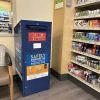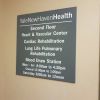The Importance of Heart Screenings for Your Health: A Comprehensive Guide
As someone who has always been curious about health and wellness, I found myself asking, "What’s the best way to protect my heart?" While regular exercise, eating a balanced diet, and managing stress are all essential, there's one often-overlooked aspect of heart health: screenings. Heart screenings are crucial for detecting hidden issues and preventing heart disease before it’s too late. In this article, I’ll explore the many benefits of heart screenings, share some personal insights, and explain why this simple step can make a huge difference in your long-term health.

1. What Exactly Is a Heart Screening?
Heart screenings are non-invasive tests that help detect risk factors or early signs of heart disease. These screenings can identify issues like high cholesterol, high blood pressure, irregular heart rhythms, and blockages in your arteries, all of which can lead to serious cardiovascular events if left undiagnosed. The goal of a heart screening is to catch problems early before they become life-threatening.
There are different types of screenings available, depending on your age, risk factors, and overall health. Some of the most common heart health tests include:
- Blood Pressure Check: High blood pressure is a leading risk factor for heart disease. Regular screenings help monitor this crucial aspect of your heart health.
- Cholesterol Test: Measuring cholesterol levels helps assess your risk of heart disease and guides treatment options.
- Electrocardiogram (EKG/ECG): An EKG records the electrical activity of the heart, helping detect arrhythmias or other abnormalities.
- Carotid Ultrasound: This test uses sound waves to check for blockages in the arteries that supply blood to the brain, which can lead to a stroke.
2. Why Should You Consider a Heart Screening?
Now, you might wonder why you should bother with a heart screening if you feel fine. Here’s the thing: many heart issues develop silently, with no obvious symptoms until they reach a critical point. This is why heart screenings are so important—they catch potential problems early, allowing for timely intervention and treatment. Let me tell you a personal story to illustrate why these screenings matter.
About a year ago, a close friend of mine went for a routine checkup. He had no symptoms or signs of heart problems, but his doctor insisted on a basic screening. To everyone’s surprise, the test revealed that he had high cholesterol and early signs of arterial plaque buildup. Had he not gotten the screening, his condition could have progressed to a point where he might have experienced a heart attack or stroke. The doctor was able to prescribe medication and advise lifestyle changes that helped prevent a serious event.
Capital Health Medical Center – Hopewell
capital health medical center hopewell
1 Capital Way, Pennington, NJ 08534, USA

3. Early Detection Saves Lives
One of the most powerful reasons to get heart screenings is that early detection can save lives. Many people don’t realize they have a heart condition until it’s too late. For example, heart disease is often referred to as a "silent killer" because it can progress without showing noticeable symptoms. Early detection through screenings means that doctors can intervene before the disease progresses to a point where it becomes life-threatening.
Additionally, heart screenings provide the opportunity to manage existing conditions like high blood pressure or diabetes, both of which increase the risk of developing cardiovascular disease. Regular screenings allow healthcare professionals to adjust treatments and provide guidance on lifestyle changes to reduce these risks.
4. The Link Between Heart Screenings and Lifestyle Changes
Aside from detecting hidden health issues, heart screenings can also help you take charge of your health by informing you of areas where you can improve. After my own screening, I was surprised to learn that my cholesterol levels were higher than I thought, despite feeling generally healthy. My doctor gave me a set of personalized recommendations that helped me adjust my diet, exercise routine, and stress management techniques. Over time, I saw improvements in my health, including lower cholesterol levels and better overall cardiovascular fitness.
Screenings can also help you understand your risk factors more clearly, empowering you to take proactive steps toward heart disease prevention. Whether it’s incorporating more heart-healthy foods into your diet, increasing physical activity, or quitting smoking, the information you gain from heart screenings can significantly improve your quality of life.
5. What to Expect During a Heart Screening
If you’re thinking about scheduling a heart screening, you might be wondering what the process entails. The great news is that most heart screenings are quick, non-invasive, and relatively simple. For example, a cholesterol test involves a blood draw, while an EKG only takes a few minutes to measure your heart’s electrical activity. Depending on your risk factors, your doctor may recommend additional tests such as a stress test or echocardiogram.
The key is to consult with your healthcare provider to determine which screenings are right for you based on your age, family history, and lifestyle. In most cases, these screenings are painless and require little to no preparation. The results are typically available within a few days, and you’ll have a clear understanding of your heart health status.
6. How to Find the Right Heart Screening Providers
Finding a trusted healthcare provider to perform your heart screenings is essential. Look for a provider who specializes in cardiology and offers a range of screening options tailored to your specific needs. Websites like HeartCare Hub provide resources and recommendations for the best heart doctors and clinics in your area. By working with a reputable provider, you can ensure that you receive accurate results and personalized care.
Additionally, if you’re unsure about which screenings you need, your provider will be able to guide you in the right direction. Having open conversations with your doctor about your family history, lifestyle, and concerns will help create a screening plan that’s right for you.
7. Overcoming the Fear of Heart Screenings
Despite the obvious benefits, many people avoid heart screenings because they fear the results. It's understandable to be nervous about potentially being diagnosed with a heart condition. However, it's crucial to remember that heart screenings are tools for early detection, not to scare you. The earlier an issue is identified, the easier it is to manage and prevent more serious complications. Think of heart screenings as a form of self-care, a way to protect yourself and stay proactive about your health.
In my case, once I got over the initial apprehension and understood the benefits, I realized that scheduling regular heart screenings was an investment in my long-term well-being. By taking small steps now, I’m giving myself the best chance for a healthier future.






















Deborah Heart and Lung Center
deborah heart and lung center
200 Trenton Rd, Browns Mills, NJ 08015, USA